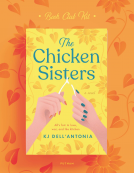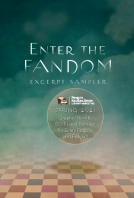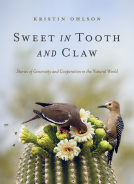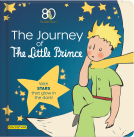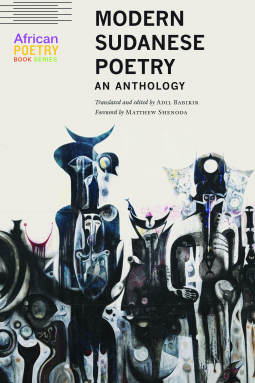
Modern Sudanese Poetry
An Anthology
by Translated and edited by Adil Babikir
This title was previously available on NetGalley and is now archived.
Send NetGalley books directly to your Kindle or Kindle app
1
To read on a Kindle or Kindle app, please add kindle@netgalley.com as an approved email address to receive files in your Amazon account. Click here for step-by-step instructions.
2
Also find your Kindle email address within your Amazon account, and enter it here.
Pub Date Sep 01 2019 | Archive Date Sep 30 2019
Talking about this book? Use #ModernSudanesePoetry #NetGalley. More hashtag tips!
Description
Modern Sudanese Poetry features voices as diverse as the country’s ethnic, cultural, and natural composition. By bringing these voices together, Babikir provides a glimpse of Sudan’s poetry scene as well as the country’s modern history and post-independence trajectory.
Advance Praise
“This is an unprecedented accomplishment not only in translation of modern Sudanese poetry but also scholarship on its history, evolution, poetics, and aesthetics. . . . This book is a great addition to the library of Arab poetry in translation that should appeal to scholars and the general public with interest in Arabic poetry.”—Salah M. Hassan, Goldwin Smith Professor of Africana Studies and History of Art and Visual Studies at Cornell University
“Sudanese literature has long been a significant contributor to Arabic and world letters and culture. The thoughtful, provocative introduction in this anthology, combined with the clear-eyed lyric transformation of the poems into English, honor poetry everywhere. Just as in Iraq, Yemen, Morocco, or the United States, the weight of collective history and ethnic and linguistic diversity emerges to forge these Sudanese poems into art, both bound to and liberated from the national frame. Details matter, nuance is essential. And yet the story of Sudanese poetry is the story of poetry all over the world. From blaze to breeze, this is a beautiful book.”—Fady Joudah, Palestinian American physician and author of the poetry collection The Earth in the Attic
Available Editions
| EDITION | Other Format |
| ISBN | 9781496215635 |
| PRICE | $19.95 (USD) |
| PAGES | 180 |
Links
Featured Reviews
Having not had read any poem by Sudan's modern poets this collection, spanning more than six decades of the country's post-independence history, features poignant poems that address a wide range of themes - patriotism, war, nostalgia, sufism and an honest search for identity.
Modern Sudanese Poetry is an anthology of post-independence (1964-present) poetry from Sudanese poets. This book is in the African Poetry Book Series. Anticipated release date is 1st Sept 2019 from the Originally published on my blog: University of Nebraska press. It's 186 pages and will be available in paperback and ebook formats.
This volume is impressive in several ways. This is obviously poetry in translation, the translation work by editor Adil Babikir seemed seamless and quite a number of the poems moved me despite being translated to English (and despite being read through the lens of my experiences as a western white woman). The included poetry is appealingly wide ranging. There are both male and female poets represented here. The poetry encompasses both the Arab and African experiences (sometimes both at once). There is a lot of poignant counterpoint in the culture of the region and it is reflected in the poetry.
I also really liked the supporting materials. There is a very well written, accessible, scholarly forward by Matthew Shinoda which provides background information, some concise history and some interesting observations on the language and culture of the region. There is also an introduction, presumably by the editor, which gives a broad background with poetic and literary influences. The intro is accessible and also well documented, with a wealth of possibilities for further reading beyond the scope of the book.
The introductory materials represent roughly 20% of the page content. There are poems from (by my count) 31 poets, many of them have more than one poem included. I felt glimpses, reading them, of the common bonds which everyone shares across cultures and throughout time. We all experience love and loss and regret and confusion and anger.
There's an included notes section with some footnote info, a bibliography and reference section after the poetry, along with short contributor biographies.
I have done quick searches online and through the interlibrary catalogue at my university library. There is very little Sudanese poetry in translation available. None of these poets were familiar to me, and I found a number to follow up. This anthology was needed. Very well done (academic, true, but accessible and appealing to the layperson).
Five stars
 Joseph S, Reviewer
Joseph S, Reviewer
Modern Sudanese poetry is a blend of poetry forms. At its core, it seems much like traditional Arabic poetry of the Mediterranian region, but it contains many different influences. The most substantial influence comes from African tradition. Islam and the Arab influence came later to Sudan than to North Africa, so there is much more of an African flavor to some of the poetry. Other influences may surprise some readers. Russian influence dates from the Cold War and continues still today with economic and political relations. Internal unrest and civil war also add another layer to the poetry.
Through the sixty or so years this anthology covers the reader will see variations of the above themes and combinations of themes. The Arabic style of poetry is well done, and one might have trouble recognizing that it came from outside Palestine or the Middle East. The collection includes biographies of the poets and also lists the translators. This collection is edited and translated by Adil Babikir. He has translated several works, including Mansi: A Rare Man in His Own Way by Tayeb Salih and two novels by Abdelaziz Baraka Sakin. A very well done collection of poetry covering several decades of a now divided nation who still remains underappreciated in the world of poetry.
Our passion for you, Aazza, is firm and stout.
Like mountains we stand, hard to sway.
Our bowstrings, alert and taut,
keep intruders away.
I never forsook my homeland: the land of ultimate beauty;
I always sought perfection, never rested for less.
My heart never throbbed for someone else;
as to the left I lean, take me in your right hand and embrace.
I can never forget Bilal’s orchard
our playgrounds under the shade
like flowers on hilltops
leaping to reach the stars
a palm-frond crescent braided on my forehead.
~ from "My Beloved Aazza" by Khalil Farah
 Anne M, Reviewer
Anne M, Reviewer
I know nothing of Sudanese poetry, or indeed Sudanese history and culture but I do love poetry so this title intrigued me. Having read it twice (and no doubt will several more times), I cannot pretend I understand the complex politics and culture of this fascinating country but I am certainly more informed about their pains and emotions because many of them are universal.
A lot of the work goes past me as I don't understand the references, but that does not stop me understanding the feeling and the drive to capture your pain and your pleasures in words. A few examples will help I think:-
"Light enough to be swept away by a child's smile, yet no might can shake him out of place'"
A Poet Idris Jamma
"The night's silence lulls to sleep the heart-free poets, but their notebooks remain wakeful and alert, and their verse - trapped in their pens - oozing with revolt; and their inkpots revving with fury."
The Pre-Eruption Silence Aalim Abbas
"I am not scared of you because I am part of you, And you are part of me, Yet I cannot stop wondering how I will feel when we part?"
The Spider's Text Millennium Messages to Life Rugaia Warrag
The book is full of beautiful language, and a mosaic of lives and emotions and I will definitely be revisiting it and researching some of the history described in the excellent introduction.
Recommended if you are looking for something different to add to your poetry collection or if you want to try reading more in translation this year.
I was given a copy of the book by Netgalley in return for an honest review.
 Kelly F, Reviewer
Kelly F, Reviewer
I haven't read a great deal of poetry or know a great deal about Sudan, its history and culture but I was attracted by the cover of this book and I have been aiming to read more poetry so I thought I would give it a try.
What I was rewarded with was a rich vast collection of translated poems dipping in to love, identity, politics, sufism, patriotism, war and philosophy by some of Sudan's most renowned modern poets.
The books aim was to capture Sudan's modern history and diverse culture which it did perfectly through the many voices of these poets. Translated Sudanese poetry is not very readily available so these voices need to be heard and their words put out there to just "stop and make us think' which these well crafted messages did.
Educational, enchanting and thought provoking I slowly savoured these reading a few at time and reflecting upon the language. A welcome addition to a poetry collection.
My thanks go to Netgalley in providing this arc in return for a honest review.
This was a really, really interesting book. I found the introduction particularly illuminating; like most people in the West, I would imagine, I know very very little about Sudan and its history and culture, so having the introduction to ground the poems in a rhetorical tradition was really helpful when it came to appreciating them.
There's a good mixture of subjects in this book, although the thing that struck me most was the sheer number of poems that were explicitly about Sudan and its history, the blood and tears that have been spilt in its name. There were so many poems that were essentially love songs to the land, even though the land has been so mistreated and the people have suffered so much for it. I think if you were to publish a compendium of poetry from France, for example, very few would be about the land itself. It was striking to me how the history of a place is indelibly inked on the people and the broader cultural consciousness. I would never even think about having to suffer for my own country's independence, and it was enlightening to read how it feels for those who do; how there's more than just pain there, but pride, too. I did find that a lot of poems, perhaps because they were translated by the same individual, sounded the same; it was hard to discern different authorship in many cases, with the exception of three or four very distinct voices (mostly women - this collection definitely has a gender bias, with very few female poets).
My only real bugbear with this book was that I feel the translation may have been a bit heavy-handed at times. I'm sure this is because there are concepts in Arabic which just don't translate well into English, but it made for some quite bizarre syntax and phrases; the phrase 'roaming dervish' was used in multiple poems, and it's just not something that I could parse. Much of that is my own cultural context, though, and I wouldn't say it's a bad thing; it's just something to consider for those who, like me, are coming at this poetry from a completely uneducated perspective. There are notes at the end of the book which help mitigate this.
A very interesting read, and I absolutely feel like I understand if not the history then the humanity of the poems in this collection. I haven't come out of it an expert in Sudan or Sudanese culture by any means, but it's given me a connection to the place I see in news reports that I think is absolutely vital for those who only ever see the name Sudan in connection to war and violence. The way a place is presented to us absolutely colours how we think of it, and this collection of poetry could not come at a more urgent time.
 Reviewer 492564
Reviewer 492564
This is a much-needed book, as there is almost no other Sudanese poetry in English translation on the market. While the introduction is repetitive and the translations often awkward, the poems are nonetheless striking and urgent. I was especially struck by the sense of mortality and the horrors of the recent civil war in Sudan and the ways in which many of the poets navigated this trauma through a combination of direct address and metaphor using nature imagery. I recommend this to casual readers of poetry in addition to scholars and those interested in the land and its people.
Thank you so much Net Galley and University of Nebraska Press for this most interesting anthology! I did not know anything about Sudanese literature, let alone its poetry and am always eager to learn!
I loved the style of the various poems, their topics and themes (light and darkness, which is even a motif, identity, freedom, one’s homeland, family, legacies, ageing…).
My favourite is The Old Sea by Mustapha Sanad:
“Between us walls expand – as does an eternal night –
and a thousand doors stand.
Between us my senescence is laid bare,
and the masks of youth fade away.”
The beginning of this poem is extremely moving and well written.
It is a treasure of poetry, but also of political and historical allusions.
I highly recommend it!
#ModernSudanesePoetry #NetGalleyFrance
 Emma Grace B, Reviewer
Emma Grace B, Reviewer
I think this is going to be a really important book; it is the best poetry anthology I’ve read in a long time. It is a collection of the writings of Sudanese poets over the last several decades, translated into English. It is amazing enough that these works survive, and even more beautiful to see the diversity in the writing. The styles of poetry are different, ranging from traditional Arabic poetry to more Russian/Soviet style to free form. The subject matter is also different, including religion, love poems, and the shocking ravages of war. I particularly liked Wedding Parade by el-Magzoub, A Poet by Jamma’,Departure at Night by Abu Zikra, Whispers by Elgizouli, and many more! There is a typo where angel is spelled angle.
 Anna D, Reviewer
Anna D, Reviewer
So very different from the poetry I usually read, but at the same time - somehow familiar. I think it was the love pouring out of those poems that resonated with me, even though I never even step foot further south than Rome. This collection is vibrant and honest, and beautiful, and at times even heartbreaking. I would definitely recommend it to those who have never read any African poetry before, but also the readers who are already acquainted with it.
 Jade H, Reviewer
Jade H, Reviewer
The work of a translator is exceptionally difficult. The translator has to convey the message of words written by another person without actually knowing that person, but they also need to make sure they flow correctly in the target language, so much so that the reader should never be able to tell that the text is not in the original language. Poetry is generally full of metaphors, meter, rhythm, and anecdotes that make translation all the more difficult. Adil Babikir has done an amazing job in the translation of these poems into English from Arabic, a task I can only imagine was intense and most probably agonizingly difficult at times!
Modern Sudanese Poetry is an anthology of Sudanese poems both curated and translated by Adil Babikir. The collection also contains a detailed preface about the anthology and the poets, why each one was chosen, and the reason why certain areas may be lacking (southern Sudanese poetry/spoken word for example, or poems that the editor was unable to secure publishing rights to). The collection spans 6 decades of Sudanese poetry (from the 1960’s until today), and includes both male and female poets (although I would like to have seen more women featured from the earlier period). I had personally not heard of any of these poets before and am grateful to Adil Babikir for the work they have done to bring us these wonderful works of art into the English language.
I read this collection slowly, savoring each poem, giving each poet time to linger in my head. There are many cultural references in the poems, a love for a homeland torn by war, but also hope, resistance and love. There is also so much beauty within this collection, poems that sing to you, twirl you around, and break your heart in two. I would love to read more content by each and every poet featured!
Thanks to Netgalley and the publisher for the advance copy of this collection. I encourage all poetry lovers to grab a copy and delve into the world of Sudanese poetry, you will not be disappointed.
#ReadAfrica2018 #ReadAfrica2019 challenge Book 16: Sudan
 Reviewer 366631
Reviewer 366631
I liked that I learned more about another culture then my own and learned more about the poets who wrote these poems. At time it was hard to follow a long but I did enjoy it. I wasn't expecting this collection of poems to be how they were or have a section about the poets themselves.
 Kristin J, Reviewer
Kristin J, Reviewer
Moder Sudanese Poetry was an interesting poetry collection that covers a lot of different themes, such as war, love, identity and sufism. I just wish they included more female poets in this collection to have a even greater variety.
 veronica l, Reviewer
veronica l, Reviewer
This is my first time reading Sudanese poetry and I have to admit that I am impressed. The collection I read here is definitely unique. The love of country, life, religion, and identity as an individual and collectively shines through. Some poems resonated more than others as is usual for a collection of poems. I hope more Sudanese poetry is published in English as they are a treasure and it is shame that they do not receive more world wide recognition. Well worth a look.
Readers who liked this book also liked:
Silvia Moreno-Garcia
Historical Fiction, Literary Fiction, Sci Fi & Fantasy




